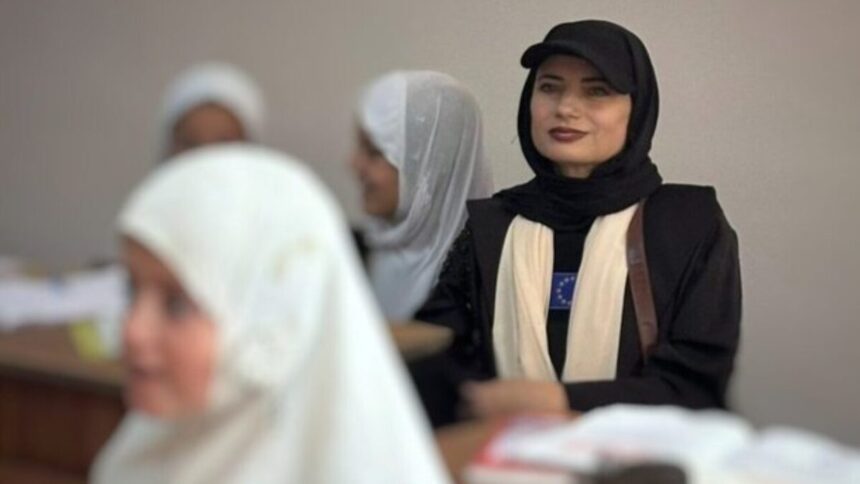RASC News Agency: The European Union has declared that Afghanistan’s export goods are effectively barred from entering European markets due to non-compliance with internationally accepted standards and the continued use of prohibited chemicals. Veronika Boskovic-Poehr, the EU’s Charge d’Affaires in Afghanistan, delivered this statement on Thursday, May 8, via her official account on the X platform. Boskovic-Poehr clarified that the European Union has imposed no financial sanctions or tariffs against Afghanistan. However, she underlined a more fundamental and systemic issue: “The core problem lies in the failure of Afghanistan’s products to meet the essential health, safety, and regulatory standards required for entry into European markets.”
Despite Afghanistan’s potential in agriculture, medicinal herbs, and traditional crafts such as carpets sectors long praised for their export potential the Taliban regime has made no measurable effort to institutionalize or enforce quality control mechanisms. In the absence of functioning regulatory bodies and adherence to global protocols, Afghanistan’s products remain unqualified for global trade. This shortcoming reflects a broader collapse of governance and infrastructure under Taliban rule, which has turned Afghanistan into a quarantined economy on the world stage. The EU delegation in Kabul reiterated its commitment to promoting Afghanistan’s path to self-sufficiency. However, it stressed that sustainable development and global trade integration cannot occur under a regime that actively excludes half of its population from public life. The EU emphasized the urgent need for inclusive policymaking, especially regarding the role of women in economic recovery.
Boskovic-Poehr issued a stark warning regarding the Taliban’s ongoing marginalization of women and girls from education, employment, and public engagement. “This systematic exclusion undermines public trust and is projected to cost Afghanistan approximately $920 million or 5.8% of its gross domestic product between 2024 and 2026,” she noted. The Taliban’s gender-apartheid policies, she argued, are not only morally indefensible but also economically catastrophic. A recent report published by the United Nations Development Programme (UNDP) echoes these concerns. It highlights how Taliban-imposed restrictions on women’s participation in the workforce and higher education have deepened gender inequality, driven more families into poverty, and significantly narrowed the country’s developmental prospects. According to the UNDP, nearly 90% of Afghanistani households have suffered direct economic shocks in 2024 a sharp 35% increase over the previous year. Furthermore, 75% of the population now lives in conditions of livelihood insecurity, with rural families and women-headed households bearing the brunt.
The report underscores that the Taliban’s failure to establish a transparent and inclusive economic system has stripped Afghanistan of both internal resilience and external credibility. The country remains heavily dependent on imports and foreign aid, while its own production capacity continues to deteriorate due to mismanagement, lack of investment, and social repression. The United Nations concludes that if the Taliban regime continues its current course marked by institutional exclusion, anti-woman edicts, and administrative incompetence Afghanistan is destined to spiral further into socio-economic collapse. The country’s international isolation is not a result of sanctions or external pressure, but rather the predictable consequence of the regime’s refusal to meet the basic criteria of responsible governance.
Afghanistan’s reentry into the global economy is not impossible but it is entirely conditional on whether the Taliban is willing to reform. Until Afghanistan complies with international trade standards, respects human rights, and reintegrates women into all levels of public life, its economy will remain paralyzed, and its people condemned to continued hardship.






